
“A ferlie he spied wi’ his e’e”: Examining the Apologetic Apostrophe
In this article, we’ll explore the historical-linguistic phenomenon, the apologetic apostrophe, first developed in Scotland during the 18th Century in response to an ever-growing English-speaking readership’s demand for Scots literature. There’ll be a spot of Scottish history (shut up, it’s good for you), followed by analysis of how this feature of opportunistic punctuation became a pervasive, genre-intrinsic trope, and concluded with the merest dash of politics. I won’t lie: a number of passages have been directly copied and pasted from my masters dissertation due to time/willpower constraints but, if your life is feeling particularly empty one day – e.g. you’ve realised life as a waifish orphan isn’t all it’s cracked up to be/ you hate your family and wish you were a waifish orphan – it might be a fun game to guess which passages. Answers on a postcard.
The Modern Scots era was a period of enterprise and radical tumult, both for Scotland and her languages, encompassing the Treaty of Union, the Jacobite Rebellion, and the advent and diffusion of Scottish Standard English (the not-at-all embarrassing Scottish equivalent of RP). Whilst the Union of Parliaments in 1707 is often regarded as hastening the demise of the Scots language, the ensuing protests (read: shit-storm) produced a resurgence in Scots literature: ballads and oral tales and songs were revisited, revitalised and committed to paper, many for the first time. Despite this literary response, though, the political and social centre of gravity had inveterately shifted south and the century would confirm the Scots
The influence of an English-speaking readership would be critical in the development of the Scots language’s fortunes in the 18th and 19th Centuries: the advent of literacy[1], wherein Scots would be taught English linguistics norms, would result in the use of Anglicised <oo> spelling to represent /u/ in words such as hoose, moose and aboot, and the exponential erosion of Scots lexis: the departure south of Scotland’s premier political institutions limited the capacity of Scots to innovate lexically, particularly for scientific or specialist terms – there being, for instance, no specifically Scots term for evolution. Or felching. (Editor's note for the unwary: please don't google 'felching'.)
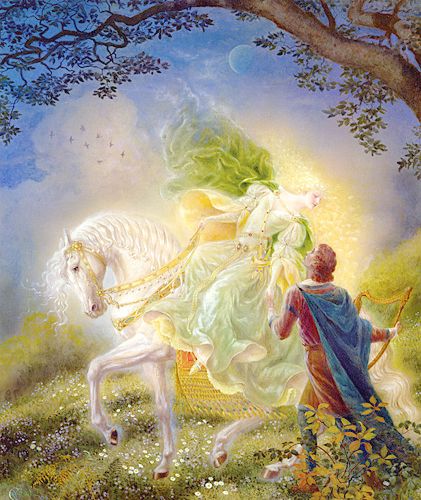
Most iconic, perhaps, of the official downfall of Scots was the introduction of the apologetic apostrophe: the item of punctuation signifying ‘missing’ letters in Scots words such as no’ (not) and fu’ (full). First used by the notable antiquarian, Allan Ramsay (1686-1758), the apologetic apostrophe was a marketing strategy by the Scottish literati, designed to make the language accessible to a swelling, middle-class English-speaking readership whilst retaining, ostensibly, the perception of authenticity. For example, observe below the opening lines of two versions of the story of Thomas the Rhymer, the first by Anna Gordon (1747-1810) and the second by Walter Scott (1771-1832):
True Thomas lay oer yon’d grassy bank
And he beheld a Ladie gay
A Ladie that was brisk and bold
Come riding o’er the fernie brae
Her skirt was of the grass green silk
Her mantle of the velvet fine
At ilka tett of her horses mane
Hung fifty silver bells and nine
Gordon, 2011: lines 1-8
True Thomas lay on Huntlie bank;
A ferlie he spied wi’ his e’e:
And there he saw a ladye bright,
Come riding down by the Eildon Tree.
Her shirt was o’ the grass-green silk,
Her mantle o’ the velvet fine;
At ilka tett of her horse’s mane,
Hang fifty siller bells and nine.
Scott, 1812: lines 1-8
Aside from obvious differences in orthography, structure and punctuation (to be revisited in a later article), note the absence of apologetic apostrophes in Gordon’s version and their introduction in Scott’s in line 2 (the latter’s version being inspired by the former’s). Unlike Scott, Gordon wrote down her version of the ballad purely for the benefit of various antiquarian scholars and writers. Scott, however, produced his version in his ballad collection, The Minstrelsy, whose ensuing popularity with English-speaking audiences would make him very rich indeed. This strategy to improve the marketability of Scottish prose and poetry would, according to Corbett, Mclure et al, have “the unfortunate effect of suggesting that Broad Scots was not a separate language system, but rather a divergent and inferior form of English” (2003: 13). Of course, as the Mongongo nut is salvaged from even the most impenetrable pile of steaming elephant shit, so too was there a redeeming factor to this affair. As a result of the uptake of textual transmissions of Scots works by the antiquarians and other interested parties, “from the eighteenth century onwards there is an exponential growth in the variety of literary forms in which Scots is used” (Bann & Corbett, 2015: 67). So that’s nice.
It’s important to differentiate between an apologetic apostrophe and a simple contraction – something this linguistics podcast fails to do. They argue that contracting over to o’er is an apologetic apostrophe – which is incorrect. Crack out the pitchforks and dismiss their lies! Possibly burn their holdings. Leer at their cat and thus make him uncomfortable… Contracting over to o’er is a common method, evident throughout the history of English, for shoehorning bi- (and sometimes tri-) syllabic words into monosyllabic varieties for the purposes of metrical rhythm e.g. if you’re writing to a meter of iambic tetrameter (four feet of dee-dum) but have nine syllables, that just won’t do. What they’re referencing is an eliding apostrophe – NOT an apologetic one. Be vigilant and stay safe, kids.
Someone really ought to write a history of the apologetic apostrophe – indeed, a detailed history of the apostrophe itself would be fascinating (fuck you, it would be). I say this only because, in the course of the last three hundred years, the apologetic apostrophe went through a period of radical evolution, transforming from a linguistic unit of accessibility and into a literary device, and the details of this mutation are unclear. By what manner (and media) did the apologetic apostrophe diffuse? At what pace? Was there more than a single country of diffusive origin, or is this a singular Scottish innovation? Or, one wonders aghast, is the literary device an independent invention, originating independently from its linguistic cousin? If you don’t find out, I’ll have to do the donkey work and I tire so very easily.
The influence of an English-speaking readership would be critical in the development of the Scots language’s fortunes in the 18th and 19th Centuries.
Despite the fug of terra incognita, the apologetic apostrophe made the transition from linguistic feature to literary device and, as with all things literary, the function of the apologetic apostrophe in fiction seems less concerned with accessibility than it is expressing a characteristic of its respective speaker. Question: recall, if you can, instances of the apologetic apostrophe in novels, poems, video games etc. What was the nature of the speaker? An august elf? A sagacious wizard? A young hero, emerging into adulthood and struggling to not masturbate for 500 pages? You’re fuckin’ right it wisnae. The apologetic apostrophe in literature has (almost) become universally applied as part of a wider characterising apparatus wherein supporting characters of certain personalities, such as the brutish minion, the sweet-but-simple friend, are given non-standard dialects – indicated by apologetic apostrophes – to indicate their natures. Observe the two following examples:
“An’ here’s Harry!” exclaims Hagrid, when he meets the novel’s protagonist in chapter four, continuing, “Las’ time I saw you, you was only a baby” (Rowling, 1997: 39). Note the apologetic apostrophes in the opening words of each sentence and then consider Hagrid’s nature: a good-natured groundskeeper, loyal but naïve, rustic, comedic (crucially unintentionally), and magically-impotent. This echoes historical examples – for instance in The Private Memoirs and Confessions of a Justified Sinner, the character of John Barnet is a reverend’s manservant: perceptive but disposable. Hinting at his suspicions of the protagonist’s dark heart, he says: “They find ma bits o’ gibes come hame to their hearts wi’ a kind o’ yerk, an’ that gars them wince” (Hogg, 2010: 80). Of course, whatever perceptive abilities he possesses are rendered ineffectual by his non-standard dialect – his efforts to thwart evil are ignored.
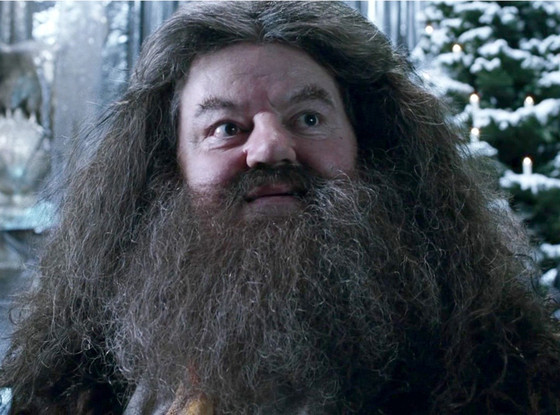
As with Hogg’s prose in the early 19th Century, Rowling’s use of the apologetic apostrophe is part of a wider nexus of sociolinguistic and phonaesthetic tropes: pioneered in Scots literature (for the same reasons as the apologetic apostrophe), it became, and continues to be, a popular device by authors to write narrative in standard English and contain non-standard dialectal speech within dialogue.
It’s still less common for a speaker in fiction (and particularly the fantasy genre) of a non-standard dialect to be written as the protagonist of any literary venture, but one such instance is Lyra Belacqua: the fearsome, bidialectal protagonist of Pullman’s (utterly magnificent) The Northern Lights (also known, unnecessarily, as The Golden Compass). Unlike Hagrid, then, where Rowling’s use of the apologetic apostrophe is arguably solely literary to convince us of the stereotypical qualities that attend its use (see also the driver of the Knight Bus, Stan – Choo lookin’ at? – Shunpike), Pullman deploys the apologetic apostrophe in order to reflect the communities of practice that Lyra moves in, a phenomenon explained by Milroy as “the closer an individual’s network ties are with his local community, the closer his language approximates to localised vernacular norms” (1980: 175). In essence, Lyra uses standard English variants whenever speaking to an authoritative audience, such as her father, Lord Asriel, and non-standard variants when speaking to peers.
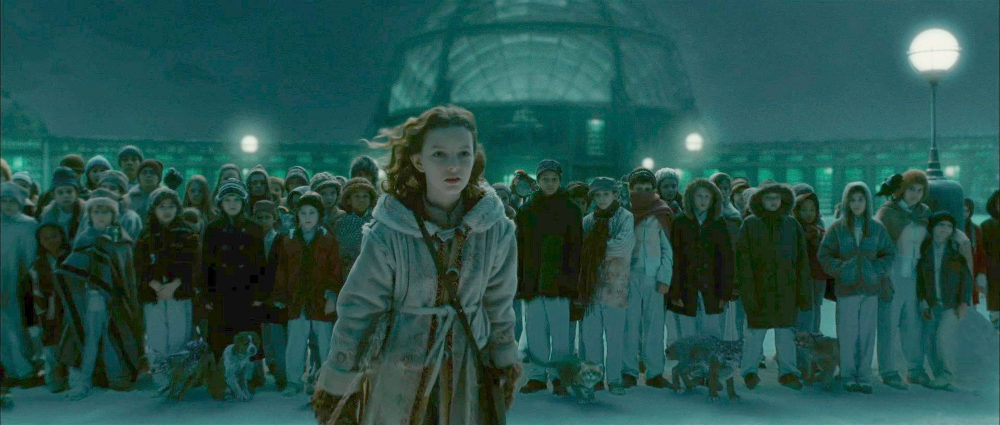
Observe this passage from chapter 2 between Lyra and Lord Asriel:
“Did they vote to give you money?” she said, sleepily.
“Yes.”
“What’s Dust?” she said, struggling to stand up after having been cramped for so long.
“Nothing to do with you.”
“It is to do with me,” she said, “If you wanted me to be a spy in the wardrobe you ought to tell me what I’m spying about. Can I see the man’s head?”
Pullman, 1995: 28-29
Now consider this passage between Lyra and the other children of Oxford:
“The Gobblers,” she said. “En’t you heard of the Gobblers?”
…
“Gobblers,” said Lyra’s acquaintance, whose name was Dick. “It’s stupid. These stupid Gyptians, they pick up all kinds of stupid ideas.”
“They said there was Gobblers in Banbury a couple of weeks ago. They probably come to Oxford now to get kids from us. It must’ve been them what got Jessie.”
“…They en’t real, Gobblers. Just a story.”
“They are!” Lyra said, “The Gyptians seen ‘em!”
Pullman, 1995: 60
The Lyra engaging with the other children of Oxford would never use ought; likewise, the Lyra attendant to her father carefully avoids non-standard expressions requiring the authorial illumination of an apologetic apostrophe such as “en’t” or “’em.” Whilst Pullman’s use of the apologetic apostrophe is arguably somewhat more sophisticated than Rowling’s, functioning as an indicator of the complex linguistic landscapes we all navigate, and Lyra is certainly less of a caricature than Hagrid, the use of the apologetic apostrophe in both texts remains bound to its original mission: decorating non-standard speech for the benefit of standard speakers (or at least speakers with an understanding of standard English as the default). It ought to be said there’s nothing inherently wrong with this – all languages have prestige forms – but it is important we’re aware of its function and impact. For science.

There are many souls the world over for whom language is a political battleground, often attended by issues of language revival. Such a scrimmage is (and has been for some time) being waged in Scotland. Not being in the business of language revival myself, suffice to say the situation concerns attempts to rejuvenate a stagnant Scots language, presumably with ultimate goal being to establish it once again as a prestige form within Scottish society. The role of apologetic apostrophe has been integral within this movement and its exorcism from textual varieties of Scots has become a socio-political act. Minutes from the meeting of the Makar’s Club in 1947 simples reads: “Apostrophe’s to be discouraged.” The website of the British Ordnance Survey, a repository of maps and guide to outdoor Britain, writes: “In earlier writing an apostrophe will be found in such words, for example, ha’, to indicate the loss of ll, but this is no longer acceptable.” The banishment of the apologetic apostrophe was a key tenet of Lallans Scots, the synthetic variety of the language created in the early 20th Century by poets such as Hugh MacDiarmid to supply Scotland with a unified national language. Whilst one might describe the idea of Lallans as an ongoing project, it has produced some rather beautiful lexis e.g. watergaw: “an imperfect or fragmentary rainbow” (Macleod, 1999: 59).
It’s still less common for a speaker in fiction (and particularly the fantasy genre) of a non-standard dialect to be written as the protagonist…
The elision of the apologetic apostrophe can also be interpreted as an important political statement, particular concerning notions of identity, in other varieties of English.
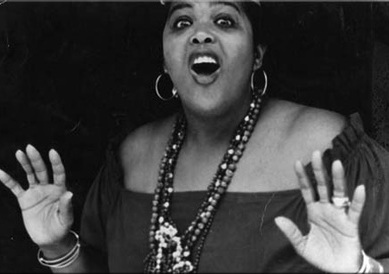
A notable example is in the poetry of the much-celebrated (and rightly so) writer and artist, Louise Bennett (pictured above). Her poem, Yuh Nephew Sue, is written in unfettered Jamaican English, as shown in its opening lines:
Aunt Tama, dear, me sad fi hear
How storm wreck Jackass Tung;
But wus of all, yuh one deggeh
Coaknut tree tumble dung!
Las week dem had a meetin fi all De coaknut growers what
Lose coaknut tree eena de storm, So me was eena dat.
Bennet, 2016: lines 1-6
In a world where social issues inevitably intersect with one another, reifying one’s identity through language is an understandable act, and thus the elision of the apologetic apostrophe an understandable protest – and in the 21st Century, it can be profoundly post-colonial. Socio-politics aside, the deconstruction of the apologetic apostrophe is perhaps an inevitable outcome of language evolution: change and deviation, as it does, becoming subsumed by systemic regulation.
Given its current trajectory, it’s likely the apologetic apostrophe will vanish genre-by-genre, beginning with, one imagines, non-fiction and its dissolution eventually migrating throughout the entirety of fiction. The apologetic apostrophe, however, is a fascinating example of how a single unit of punctuation can reach across linguistics, literature, history and politics, and in that regard we ought to admire the pluck of the little fellow.
If your whistle has been moistened by this article, you might consider ‘It’s glo/t/al stop, not glo/ʔ/al stop!’ Or don’t – I’m not paid to do this so my attitude to your education is, at best, apathetic. As a parting gift, however, do enjoy this screenshot of a cockney cockatrice.
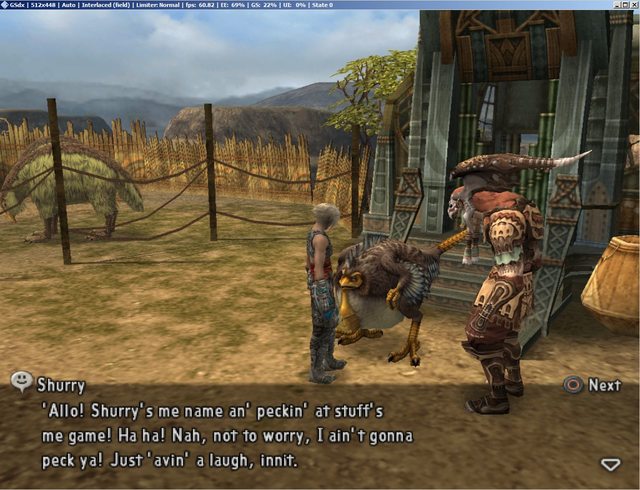
Footnotes
[1] As an interesting aside, there are parallels across the world and throughout history of oral cultures suffering their demise at the hands of literacy. A particularly rich exploration of this can be found in the novels of Chinua Achebe such as Things Fall Apart and Arrow of God, both of which explore the impact of European civilisation on the Igbo culture (now part of present-day Nigeria).
References
-
Bennett, L. (2016), Yuh Nephew Sue, Retrieved from: http://jamaica-gleaner.com/article/art-leisure/20160911/poems-0
-
Corbett, J., McClure, J. & Stuart-Smith, J. (2003), A Brief History of Scots, The Edinburgh Companion to Scots, ed. Corbett, McClure & Stuart-Smith, (Edinburgh: Edinburgh University Press).
-
Hogg, J. (2010), The Private Memoirs and Confessions of a Justified Sinner, (Oxford: Oxford University Press).
-
Macleod, I. (1999), Scots Thesaurus, (Edinburgh: Polygon).
-
Milroy, L. (1980), Language and Social Networks, (Baltimore: University of Park Press).
-
Rowling, J. (1997), Harry Potter and the Philosopher’s Stone, (London: Bloomsbury).
-
Pullman, P. (1998), The Northern Lights, (London: Scholastic).
No comments
Start the conversation…